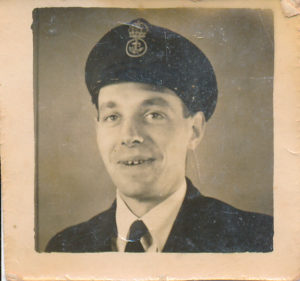
My father would not talk about the war, even though as a 9 year old child in 1957 I would ask if it was like the comic strips I used to devour. I could not imagine the horror and fear of war until I learned to whistle, and learned how to make that descending sound which I just thought was a whistle version of “phwew” but my poor mother who was born in poverty in the East End of London and suffered the blitz was transformed into the fearful frightened teenager who sheltered in a hole in the garden from the Nazi whistling bombs. The bombs whistled to scare the victims and this noise trauma stayed with my poor mum nearly 15 years later.
Dad knew that war was imminent and joined the Air Raid Precaution ARP in 1939 with a whistle and arm band, but when real war was declared he joined the Royal Navy. His family were talented engineers but very working class; he passed the exams to go to the grammar school but refused because everyone was supposed to know their place. He later told me it was because they could not afford the books but it was a family secret that this attitude of “place” was fixed. Perhaps home life with the tin bath, the meagre food that was from their family allotments and the close bonds of family and loyalty shaped him for his military service. Perhaps because poverty was part of life and the submarine service offered a bonus was an attraction.
So dad joined the navy and from his basic engineering qualifications became a Petty Officer PO in the engine room of HMS Spearhead. The few tales that he recalled were about leave from active duty in Subic Bay and in the Northern Territories of Australia where a family befriended him though I do not have details of them. He had been an acomplished swimmer and water polo player and one of his tricks was, for a suitable bet of beer, to dive off the side of the sub and swim under the submarine and come up the other side. He did admit to scraping himself on the bottom on one occasion and I think that was the end of the repeat, infections take a long time to heal. Another story was when they were in the Pacific on the surface and the rear hatch was open so that air could get to the engines, and heat escape out. Suddenly an enemy aircraft attacked and the captain ordered an emergency dive, but the rear hatch was still open, so dad described how he turned the wheel and then in his words, “hammered the dogs in” which I think is making sure the bars extend from the hatch into their locking holes. He then started to tell me about being depth charged, but like mum, the recollection was too traumatic and he didn’t want us to think of war as heroic.
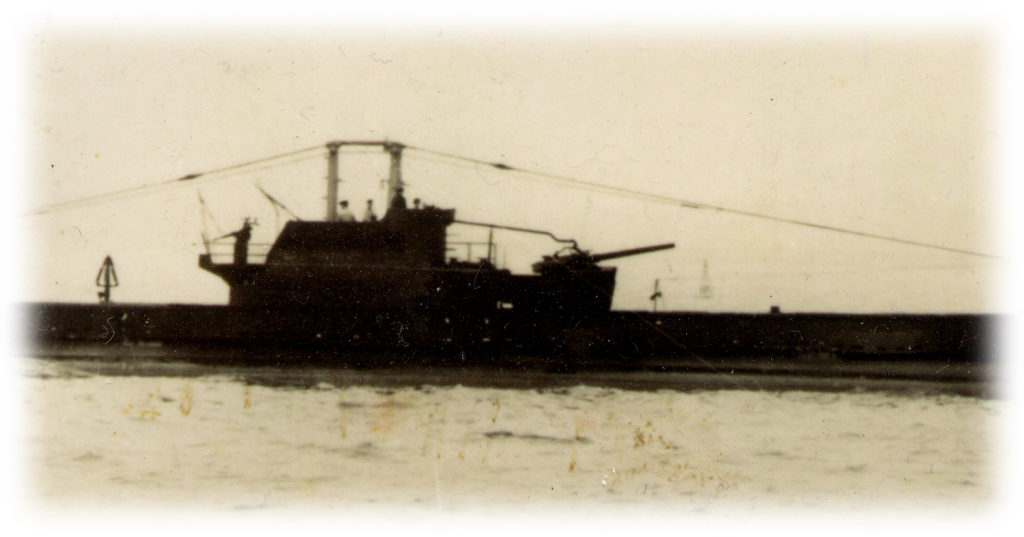
Sources of information:
Dad’s photo of HMS/M Spearhead 1945.
Dad’s statements of being in Scapa Flow and Subic Bay, Phillipines just NW of Manilla.
Mum’s statement of him based in Perth, Australia and lodged with a family of lady called Joy Flynn.
Jane’s Submarines; Spearhead was one name of the British class of ‘S’ class of submarines.
Internet search for ‘Spearhead submarine’.
Record from Jane’s submarine P78 and https://uboat.net/allies/warships/ship/3476.html
Spearhead S Class, Mod Fourth Group. Penant P 263
Builder: Cammell Laird, Birkenhead
Ordered: 17 November 1942
Laid down: 18 August 1943
Launched 2 Oct 1944
Commissioned: 21 December 1944
Commander T/Lt Roy Edmund Youngman RNR from Octobre 1944 to 27 December 1945
Fate: Sold to Portugese Navy as ‘Neptuno’ August 1948. Taken out of service 01 09 67. Scrapped 1967.
………………………………
Interpretation from information on Internet.
Australians have noted on web sites a significant Australian expedition. An Australian team put midget submarines on the Spearhead sub which motored to the Mekong Delta where the midget subs were detached. The Aussies took the midget subs and cut underwater communication cables thus disrupting the Jap information flow.
………………………………………………………
For Operation Sabre HMS XE4 (Lt Max Shean DSO* RANVR) was towed to within forty miles of the Mekong Delta by HMS Spearhead (Commander RE Youngman DSC RNR).
Looking for the two cables as they snaked out of the Saigon River and snagging them by a towed grapnel was rather like looking for a needle in a haystack, but Shean spotted some Japanese heavy guns pointing out to sea and followed the line of their fire.
By crossing at right angles to this line he eventually snagged the first of the cables, and by using the speed of XE4 raised it about ten feet off the bottom. His diver (Sub Lieutenant KM Briggs DSC RANVR) wasted no time, despite the difficulties of combating the tide, in operating the net/cable cutter (there is an example of this cutter in the Museum).
Shean soon found the second cable, and the second diver (Sub Lieutenant Adam Bergius DSC RNVR) wasted no time in matching his partner’s success.
The reason for carrying two divers was a result of the aftermath of two tragedies a few weeks earlier when Lieutenants Carey and Enzer had died during training as a result of oxygen poisoning from their breathing sets. The rule of thumb that a diver should not spend more than 20 minutes outside the hull in depths over 33ft and no more than 10 minutes over 40ft dictated that for an operation of unknown duration, two divers should be carried. The extra body onboard made living conditions even cosier than normal!
23 Jul 1945
HMS Spearhead (T/A/Lt.Cdr. R.E. Youngman, RNR) departed Subic Bay for Brunei Bay.
26 Jul 1945
HMS Spearhead (T/A/Lt.Cdr. R.E. Youngman, RNR) arrived at Brunei Bay.
27 Jul 1945
HMS Spearhead (T/A/Lt.Cdr. R.E. Youngman, RNR) departed Brunei Bay for her 2nd war patrol (1st in the South-West Pacific area). She was ordered to tow midget submarine XE 4 to within 40 nautical miles from the Mekong Delta to find and cut two telephone cables (Operation Sabre). 4 Aug 1945
HMS Spearhead (T/A/Lt.Cdr. R.E. Youngman, RNR) returned to Subic Bay with XE 4. (5)
5 Aug 1945
HMS Spearhead (T/A/Lt.Cdr. R.E. Youngman, RNR) departed Brunei Bay to resume her 2nd war patrol. She was sent to patrol off Singapore to perform lifeguard duties in that area. (5)
20 Aug 1945
HMS Spearhead (T/A/Lt.Cdr. R.E. Youngman, RNR) ended her 2nd war patrol (1st in the South-West Pacific) at Subic Bay.
Following a visit to Hong Kong Spearhead returned to the U.K. She arrived at Porstmouth on 5 December. She was paid off into reserve there on 27 December 1945. (5)
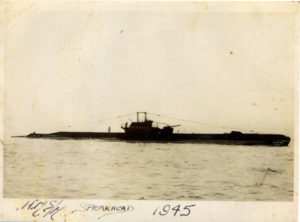
This is best viewed at https://uboat.net/allies/warships/ship/3476.html
HMS Spearhead (P 263)
Commander From Oct 1944 To 27 Dec 1945 T/Lt. Roy Edmund Youngman, RNR
Notable events involving Spearhead include:
The history of HMS Spearhead as compiled on this page is extracted from the patrol reports and logbooks of this submarine.
This page was last updated in September 2013.
19 Dec 1944
HMS Spearhead (T/Lt. R.E. Youngman, RNR) departed her builders yard for Holy Loch. (1)
20 Dec 1944
HMS Spearhead (T/Lt. R.E. Youngman, RNR) arrived at Holy Loch to begin a period of trials and training. (1)
28 Jan 1945
HMS Spearhead departed the Clyde for Scapa Flow. She made the passage together with HMS Sibyl (Lt. H.R. Murray, RN). They were escorted by HMS Bridgewater (Cdr.(Retd.) R.H. Mack, RN). (2)
29 Jan 1945
HMS Spearhead (T/A/Lt.Cdr. R.E. Youngman, RNR) arrived at Scapa Flow to participate in A/S exercises. (2)
11 Feb 1945
HMS Spearhead (T/A/Lt.Cdr. R.E. Youngman, RNR) departed the Scapa Flow for the Clyde. She made the passage together with HMS Sibyl (Lt. H.R. Murray, RN) and HMS Sceptre (Lt. H.J. Bartlett, DSC, RN). They were escorted by HMS Bridgewater (Cdr.(Retd.) R.H. Mack, RN). (3)
12 Feb 1945
HMS Spearhead (T/A/Lt.Cdr. R.E. Youngman, RNR) arrived at Holy Loch to continue her work up period on the Scottish West coast. (3)
19 Mar 1945
HMS Spearhead (T/A/Lt.Cdr. R.E. Youngman, RNR) departed Rothesay for Lerwick. She made (part of) the passage together with HMS Taurus (Lt. P.E. Newstead, DSC, RN), HMS Vagabond (Lt. I.M. Stoop, DSC, RN ) and HrMs O 23 (Lt.Cdr. A.J. Schouwenaar, RNN). They were escorted by HMS Shikari (Lt. E.A. Tyrer, DSC, RN). (4)
21 Mar 1945
HMS Spearhead (T/A/Lt.Cdr. R.E. Youngman, RNR) arrived at Lerwick. She departed later the same day for her 1st war patrol. She was ordered to patrol off Norway near Bergen.
For the daily positions of HMS Spearhead during this patrol see the map below.
1 Apr 1945
HMS Spearhead (T/A/Lt.Cdr. R.E. Youngman, RNR) ended her 1st war patrol at Lerwick. Several enemy submarines had been sighted during this patrol but they could not be attacked. (5)
3 Apr 1945
HMS Spearhead (T/A/Lt.Cdr. R.E. Youngman, RNR) departed Lerwick for Holy Loch. She was escorted by HMS Bridgewater (Cdr.(Retd.) R.H. Mack, RN). En-route HMS Taurus (Lt. P.E. Newstead, DSC, RN) joined. (6)
5 Apr 1945
HMS Spearhead (T/A/Lt.Cdr. R.E. Youngman, RNR) arrived at Holy Loch. (6)
9 Apr 1945
HMS Spearhead (T/A/Lt.Cdr. R.E. Youngman, RNR) was docked at Holy Loch. (6)
12 Apr 1945
HMS Spearhead (T/A/Lt.Cdr. R.E. Youngman, RNR) was undocked. (6)
21 Apr 1945
HMS Spearhead (T/A/Lt.Cdr. R.E. Youngman, RNR) and the French submarine Morse (Lt. O. Chauveau) departed the Clyde for Gibraltar. They joined convoy OS 124 / KMS 98 for the passage. HMS Spearhead was to proceed to the Far East.
For the daily positions of HMS Spearhead during this passage see the map below.
30 Apr 1945
HMS Spearhead (T/A/Lt.Cdr. R.E. Youngman, RNR) arrived at Gibraltar. (6)
1 May 1945
HMS Spearhead (T/A/Lt.Cdr. R.E. Youngman, RNR) departed Gibraltar for Malta. (7)
5 May 1945
HMS Spearhead (T/A/Lt.Cdr. R.E. Youngman, RNR) arrived at Malta. (7)
11 May 1945
HMS Spearhead (T/A/Lt.Cdr. R.E. Youngman, RNR) departed Malta for Suez. (7)
15 May 1945
HMS Spearhead (T/A/Lt.Cdr. R.E. Youngman, RNR) arrived at Port Said. (7)
16 May 1945
HMS Spearhead (T/A/Lt.Cdr. R.E. Youngman, RNR) transited the Suez Canal Southbound. (7)
17 May 1945
HMS Spearhead (T/A/Lt.Cdr. R.E. Youngman, RNR) departed Suez for Aden. (7)
22 May 1945
HMS Spearhead (T/A/Lt.Cdr. R.E. Youngman, RNR) arrived at Aden. (7)
23 May 1945
HMS Spearhead (T/A/Lt.Cdr. R.E. Youngman, RNR) departed Aden for Trincomalee. (7)
2 Jun 1945
HMS Spearhead (T/A/Lt.Cdr. R.E. Youngman, RNR) arrived at Trincomalee. (8)
9 Jun 1945
HMS Spearhead (T/A/Lt.Cdr. R.E. Youngman, RNR) departed Trincomalee for Subic Bay. (8)
25 Jun 1945
HMS Spearhead (T/A/Lt.Cdr. R.E. Youngman, RNR) arrived at Subic Bay. (8)
6 Jul 1945
HMS Spearhead (T/A/Lt.Cdr. R.E. Youngman, RNR) was docked at Subic Bay for bottom scraping and painting. She was undocked later the same day. (9)
14 Jul 1945
during 14 to 16 July 1945 HMS Spearhead (T/A/Lt.Cdr. R.E. Youngman, RNR) conducted exercises off Subic Bay. These included night exercises. (9)
21 Jul 1945
HMS Spearhead (T/A/Lt.Cdr. R.E. Youngman, RNR) conducted exercises off Subic Bay. (9)
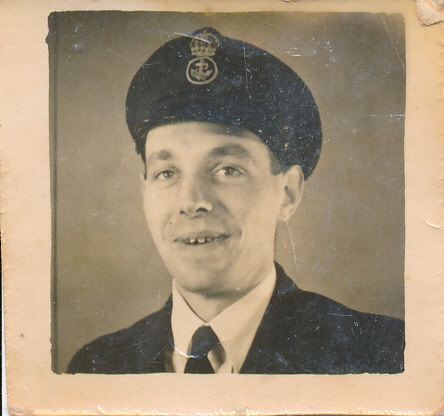
Thirty years, yet seems but days
with memories, some in haze,
Life’s ups and downs, like the hills and lakes
We have managed to climb or swim away.
Time must past, it is precious, it’s true,
But darling, things I remember still say I love you.
Thanks for forebearance, tolerance and charm,
For four lovely children, you shielded from harm,
When troubles have come, you met them so well,
Much better than I could, this I can tell.
Let’s look back, and give thanks, then look forward again,
We have other times for new memories to gain.
Verse or prose, I don’t know which,
these words I write will not make you rich,
But in your heart must be some pure carat gold,
With the rich life you have given me, my Sunny, to hold.
James Hardie Nicholson
Campaign service by British Soldiers during the Second World War was rewarded by a series of eight stars, similar to those medals presented to soldiers who fought in the First World War.
No more than five stars could be worn by any one soldier and clasps were presented to those soldiers who had further service, no recipient could wear more than one clasp on any one star.
When a recipient wears his ribbon with the medals removed, the clasps that the person had earned are usually represented with a silver rosette on the appropriate ribbon.
The eight campaign stars were made of a copper-zinc alloy and had no markings on the reverse side, they were issued with no inscriptions or personalisation to the recipient because it was considered an unnecessary expense.
Although stars presented to soldiers from the British Commonwealth Countries such as Australia were personalised by their Government with the recipient’s name and the campaign where they earned it, such as El Alamein, Monte casino, D-Day and the other great battles and Campaigns of World War II.
The Ribbons are said to have been designed by King George VI and have a symbolic Heraldic significance.
The 1939-1945 Star
The 1939-1945 star was the overseas war service star For World War II, to earn this star soldiers had to complete six months active service, except for air crews who had to complete two months operational service.
The 1939-1945 Star was the only campaign star awarded to men who saw only active service in France in 1939-1940, Norway in 1940 and in Greece and Crete. The award was also given for various commando operations and to soldiers who did not serve overseas.
The Ribbon has 3 stripes, Dark Blue to represent the Merchant Navy and the Royal Navy, Red represented the Army and the light Blue represented the Royal Air Force.
Only one clasp was awarded with the 1939-1945 stars and that was to Air force personnel who participated in the Battle of Britain.
When this ribbon is worn without the medal this clasp is represented by gilt rosette, other than the normal silver rosette on the other campaign ribbons.
The Atlantic Star 1939-1945
The Atlantic Star was presented to those who served in the Battle of the Atlantic, the brave sailors who were under threat from German Fleets and constant U-Boat attacks, continued to keep supplies moving from America to Britain and her allies.
The star was awarded mainly to Royal and Merchant Navy personnel but some RAF squadrons and Army Gunners stationed on Merchant Naval Vessels also received this award.
The Faded green, white and Blue Stripes represent the color of the Atlantic Ocean.
There were two clasps awarded with this medal, military personnel who qualified for the Air Crew Europe Star or the France and Germany Stars but only one clasp could be worn usually the first earned.
When the ribbons are worn without the medals the clasps are represented by a silver rosette.
The Burma Star 1941-1945
The Burma Star was awarded for service during the fighting against the Japanese in Burma, The jungle, rivers, hills and heavy terrain mixed with the tropical climate made this one of the hardest earned medals of the Second World War, tropical diseases, insects and heat exhaustion made life even more difficult. This star was also awarded for battles in Assam, Bengal and for service on the Chinese Frontier, later in the war this medal was awarded for those who served in Malaya during the re-conquest.
The Burma star was awarded to British Army Naval and Air force personnel and to the Commonwealth forces that fought alongside them.
The broad dark blue stripes on the ribbon represent British forces, the red stripe Commonwealth forces and the bright orange stripes represent the sun.
The Pacific Clasp was the only clasp awarded with this medal, for those who served in Burma after they had served in the Pacific campaigns.
When the ribbons are worn without medals the clasp is represented by a silver rosette.
The Defence Medal and The 1939-1945 War Medal
The Defence Medal
Was awarded for the defence of Britain most notably members of The Home Guard, the medal was also awarded to civilians, doctors, nurses, ambulance drivers and the military.
The medal could also be earned to those who served overseas, in areas threatened or subjected to air attacks and it could be awarded by itself or with other Second World War Awards.
The ribbon is a symbol of England’s Green and pleasant land and the black stripes represent the Blackout with the orange flame colored stripe representing air attack.
The 1939-1945 War Medal
The War Medal was issued to anyone who had 28 days of service in uniform, it was awarded along with any other service medals and to those who served but did not earn a campaign award.
The blue, red and white stripes on the ribbon represent the colors of Great Britain.
The 1939-1945 War Medal
The War Medal was issued to anyone who had 28 days of service in uniform, it was awarded along with any other service medals and to those who served but did not earn a campaign award.
The blue, red and white stripes on the ribbon represent the colors of Great Britain.
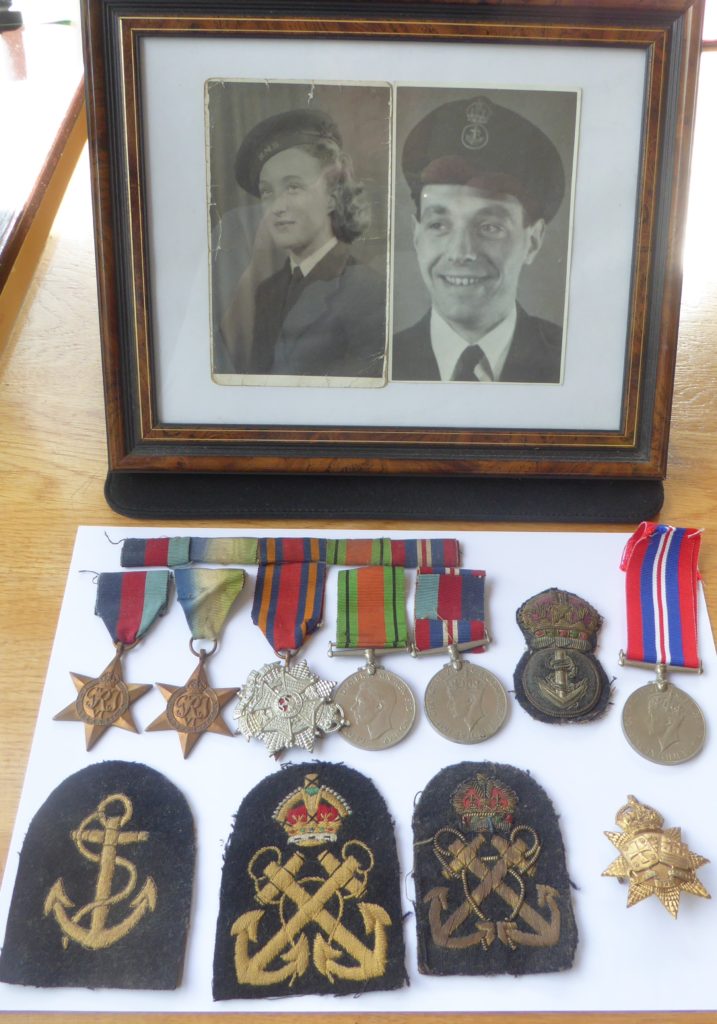
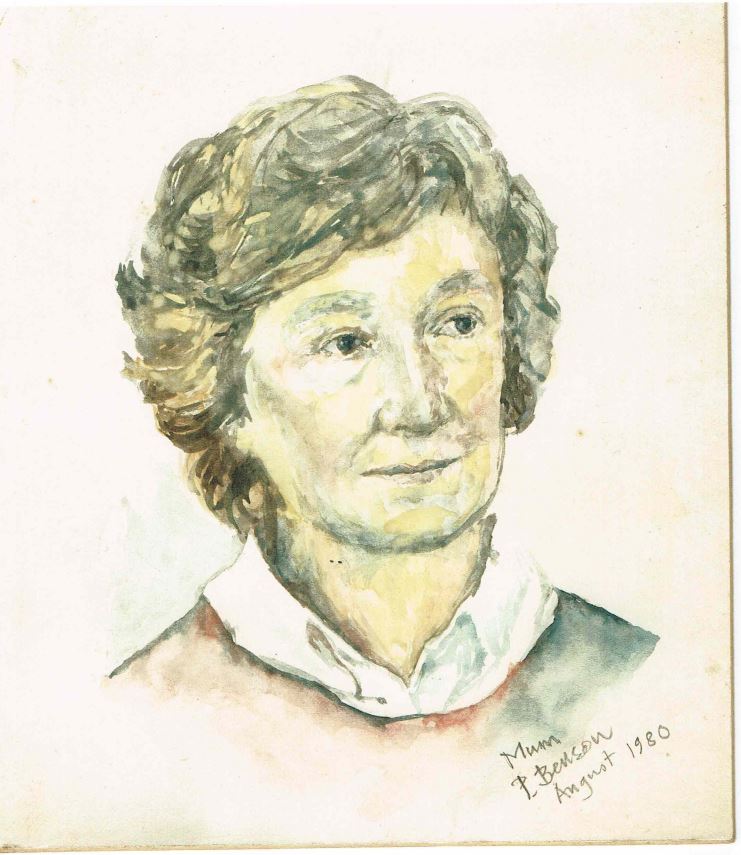
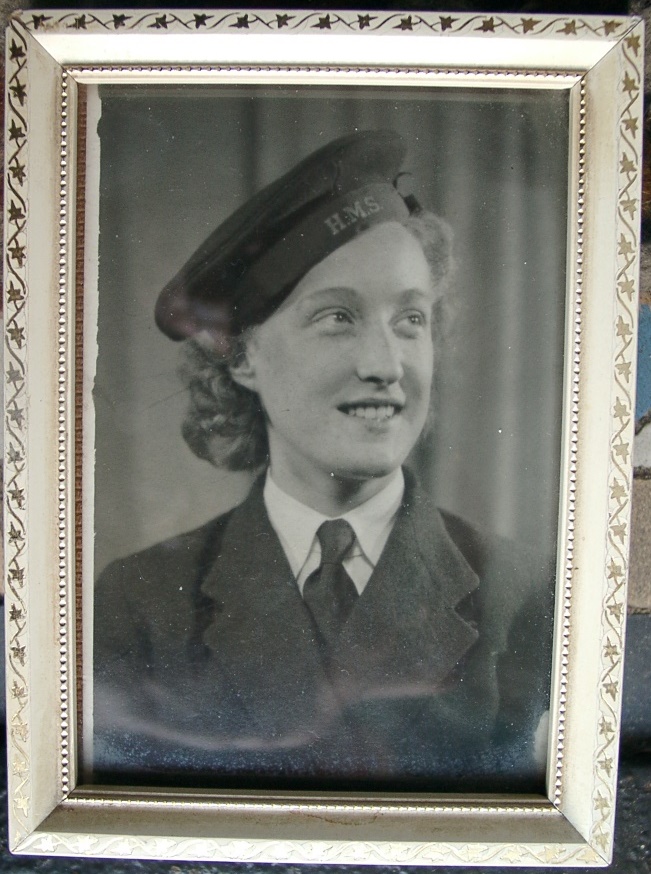
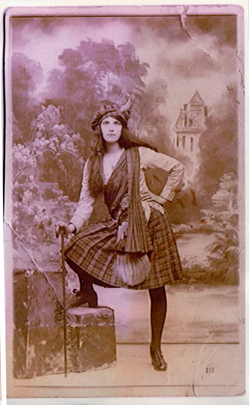
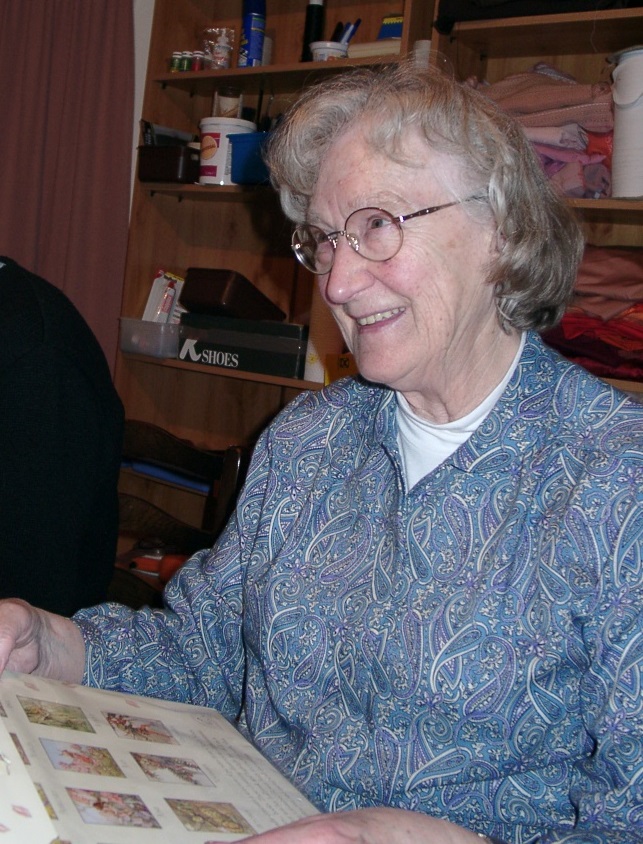
On behalf of mum’s children and grandchildren thank you all for coming. Especially those of senior years and poor health, we appreciate your effort to attend. I apologise to those who I did not contact, please forgive me. You can write to us at 27 Caldew Close if you wish.
Mum comes from an era and background that is difficult to grasp in today’s world.
Born Romford Kent 1923 she was a southerner but became a fully fledged northern lass after the obligatory waiting period.
Her mother suffered the consequences of the First World War and its aftermath and was left with four children to bring up on her own. Their poverty is hard to understand now; they were thrown out of their rented council house because they could not pay the rent and there was so little food that mum was diagnosed as malnourished and at school was given extra nutrition. She remembers cold bedrooms and the kindness of her sister who gave her a coat as an extra blanket.
She left school at 14 and had no further education, but her personal qualities do not need paper qualifications. We recognise her humour and wit; her patience and understanding; her wisdom and kindness; her intelligence and perception.
The Second World War affected her, like many of you of a similar age. She remembers, in London, her brother Ernie digging a hole in the garden putting a double mattress in it, covering it with corrugated iron sheeting and putting earth on top. That was the bed for her mum and children in all weathers while the bombs rained down in the Blitz. I remember my tuneless whistle once had mum gripping the sink in fear because it reminded her of the whistle of the bombs. Sorry mum.
Isn’t it wonderful to see that in one lifetime she can go from such discomfort to the luxury and wonderful community of the sheltered housing flat. We thank all of you in that community for your mutual caring.
The War brought a handsome sub-mariner and pretty Wren together and Dad brought his bride up to Cumberland, Carlisle and Clan Nicholson. It must have been a happy marriage because each year they produced a new child, for three years at least. I had two sisters and nagged for a brother and eventually they obliged with good old Kev my kid brother.
Mum and growing things were part of our lives from infancy. I thought I really was born in a cabbage patch because we spent so much happy time in our allotment; it was what you did, and what you did you ate. I can still remember the winter mornings when I would be sent to pick brussels with freezing fingers.
That was the period when a careful mum and hard working dad worked and saved so they could escape from the terraced house with outside toilet and tin bath with shared bathwater. They encouraged us to pass that 11 plus and wanted a new semi that they thought would fit the new opportunities that we children should have. Dad said that we should leave the world a bit better than when we came to it. They certainly did that for us by giving us a good start in life.
Mum had a love of life and sense of adventure; on holiday in Aviemore, she rode a pushbike fearlessly, although somewhat wobbly, and Mum and Dad went riding off with great merriment and laughter. Only on her return did she announce she hadn’t been on a bike for over thirty years!
I said to mum once that with her childhood she would have had enough excuses for her to have become a baddy on an ASBO. Why, I asked had she become the intelligent wise person we know. Her answer was that there are some things you are born with and there is good in people, they just need to find a way for the good to come out.
Her understanding and forgiving attitude was shown when there was a theft and I asked her what she thought of the thief. She thought then said “I feel so sorry for him because his life must be so bad that he feels he has to do this.”
Mum’s spiritual and intellectual journey through life led her to Church of Scotland, Transcendental Meditation and Quakers. She remembered with great affection people and activities associated with those groups.
Mum’s sharing and friendship led her and dad to help with the Stroke Club and mum developed craft classes and many of you will have seen her own work which she was very unassuming about but which we all admire. Please excuse me if I omit any groups or people who I should acknowledge, but I do recall her chatting with pride and affection about the friends she met at Townswomen’s Guild and Wrens, Burnside Court and … forgive me I have forgotten.
Your memories are important and I thank you for comments on your cards such as “young at heart; positive; enthusiasm for life; not complaining; a pleasure to talk to; always good for a chat and a chuckle; sound views based on logic and intelligence;
an aura of calm, understanding and wisdom; an inspiration to many.
Mum died peacefully in her own bed in her own lovely flat; she went to sleep and didn’t wake up. We thank her doctors and the health professionals who took such a genuine interest in her care and did all she wanted.
Do you remember the Desiderata poem that always hung in the hall; I have taken some lines
Go placidly amidst the noise and the haste, and remember what peace there may be in silence.
Be on good terms with all persons. Speak your truth quietly and clearly; and listen to others, they too have their story.
Be gentle with yourself. You are a child of the universe, no less than the trees and the stars; you have a right to be here. And whether or not it is clear to you, no doubt the universe is unfolding as it should.
Therefore be at peace with God, whatever you conceive Him to be, and whatever your labours and aspirations, in the noisy confusion of life, keep peace in your soul.
Be cheerful. Strive to be happy
It is still a beautiful world.
Peter
March 14th 2010
Entering Music: Vaughan Williams Fantasia on Greensleeves.
Introduction (Mum had insisted that there were to be no religious artefacts in the Crematorium so I had to go in first and ask that the cross was removed)
Good morning, my name is Michael, I am the Assistant Bereavement Services Manager here in Carlisle and it is my privilege to conduct this service of remembrance and thanksgiving for Eileen Nicholson today on behalf of her family and friends.
Donations: A donation box is provided at the exit to the Chapel, all proceeds will be used by Cumbria Wildlife Trust to support local birds and woodland which meant so much to Eileen.
After this service you are all warmly invited to Greysteads Hotel in Norfolk Road, just off Dalston Road, for refreshments
Friends we are meeting here today to honour the life of Eileen Maud Nicholson who died on Friday the 5th of March aged 86 years. A funeral ceremony is an opportunity to join in taking leave of someone we have loved and respected, but it is more than that. It is the celebration of a life and personality and a time here today to comfort those family and friends who have been deeply affected by Eileen’s death.
The Tree of Life
The death of each of us in the order of things; it follows life as surely as night follows day. We can take the tree of life as a symbol. The human race is the trunk and branches of this tree, and individual men and women are the leaves, which appear one season, flourish for a summer and then die. We too are like leaves on this tree and one-day we shall be torn off by a storm, or we shall simply decay and fall and mingle with the earth at its roots. But, while we live we are conscious of the tree’s flowing sap and steadfast strength. Deep down in our consciousness is the consciousness of a collective life, a life of which we are a part and to which we make a minute but unique contribution. When we die and fall, the tree remains nourished to some small degree by our manifestation of life. Millions of leaves have preceded us and millions will follow us; but the tree itself grows and endures.
Peter will now read a tribute to Eileen.
A quiet time in the peace of this Chapel, a time for you to recall special times and happy memories, a time to picture Eileen and all she meant to you, a time to say thank you and a time to say farewell.
Music for reflection: Lark Ascending
Will you please stand for the Committal? (Net Curtain)
To everything there is a season, a time to every purpose on earth, a time to be born and a time to die. Here in this last act, in sorrow but without fear, in love and appreciation, we commit (Name) to her natural end.
The following words are words of reflection on this day of reflection and memory. These words are entitled “Dry your tears”
You can shed tears that she is gone
Or you can smile because she lived
You can close your eyes and pray that she will come back
Or you can open your eyes and see all that she has left
Your hearts can be empty because you can’t see her
Or your hearts can be full of the love that you shared
You can turn your back on tomorrow and live yesterday
Or you can be happy for tomorrow because of yesterday
You can remember her and only that she is gone
Or you can cherish her memory and let her live on
You can cry and close your mind, be empty and turn your back
Or you can do what she would want, smile, open your eyes, love and go on.
To end our service some words entitled all is well:
Death is nothing at all,
I have only slipped away into the next room.
I am I and you are you.
Whatever we were to each other that we are still.
Call me by my old familiar name,
Speak to me in the easy way which you always used.
Put no difference in your tone;
Wear no forced air of solemnity or sorrow.
Laugh as we always laughed at the little jokes we enjoyed together.
Play, smile, think of me.
Let my name be ever the household word it always was.
Let it be spoken without effort.
Without the ghost of a shadow on it.
Life means all that it ever meant,
It is the same as it ever was;
There is absolutely unbroken continuity.
Why should I be out of mind because I am out of sight?
I am waiting for you for an interval,
Somewhere very near,
Just around the corner,
All is well.
We have been remembering with love and gratitude a life that has ended. Let us return to our own homes and to our work enriched and inspired by these memories. Peace to you all, rest in peace
Eileen.
Music Louis Armstrong “It’s a wonderful world”
Once upon a time there was a family of 3 sons. Eventually they got married and each family had a baby. The three mothers and fathers saw that all of their babies were beautiful and pure. They wanted to devise a way that the children could grow up that way and remain so.
They bought an island and employed good people to live there and feed and clothe the children. Several other parents sent their children there to shield them from the awful things that were going on in the world. The children grew up under the care of these good people, only knowing love and happiness. They wandered among the lovely gardens and sat beside the pool where beautiful water lilies grew. They laughed and chatted all day.
Their parents often chartered a helicopter and flew over to look down and see that all was well. One day while flying over the island, one of the fathers was leaning out to take photos but he overbalanced and fell out, straight into the pool. He could not swim. The children, now teenagers, had never seen anything like this before and looked with mild interest. The helicopter hovered overhead while the parents in it shouted to the young people to save the man in the pool. But they had never had to help anybody before and so had no knowledge of tragedies, or how to act in an emergency. They just continued to wander in the gardens and did not even know that they should be helping the drowning man.
Fortunately the helicopter pilot had seen a suitable spot and quickly landed. The parents rushed out and saved the man in the water.
The parents now saw how mistaken they had been in shielding their children from living their lives as normal. They had never been hurt, so could not comfort others who were hurt. Nor tend each other nor feel compassion.
They had not seen destruction so had no ambition to build. The parents now had to gradually introduce them to the real world, to build their characters.
Eileen M Nicholson
VE Day 8th May 2020 The display of medals are from Dad’s submarine service with Mum’s medal for being a Wren only awarded in 1997. I used to be a bugler in the Boys Brigade and once played the Last Post at the parade in November. I still remember the bugle calls at camp for Call In To Parade and the At The Double, it was strange and amazing that it just suddenly came to me from over 50 years ago!!
The Last Post is always thought provoking and moving and after two minutes silence standing with my wonderful Chris, I thought an appropriate tune would be “I wish I knew how it would to be free” surely the title says why we suffered and died in the wars against tyranny to set us free.
I should make no apology but I rarely play now because of arthritis in my left wrist and I think that I broke my right wrist a few days ago when I fell off my mountain bike. The I Wish tune was played though tears of respect for their sacrifice. God bless them all.
Peter